The answer is clearly YES, and that is the intention. And at the same time it’s a nightmare for honest people.
The Portuguese state and all governments in Portugal have never had and will never have a real desire to change the state of things, because it goes against the interests not only of the politicians, but in essence of most of Portuguese society, which coexists very well with the corrupt, thieves and scum in general.
Ergo, it is a paradise not only for the corrupt, but for all the countless crooks that exist in Portugal, as well as for the endless mediocre. The reason for this endemic situation is that the overwhelming majority of Portuguese people are all of very low quality, to a greater or lesser degree. For every Portuguese scumbag who dies, ten Portuguese scumbags are born.
Any Portuguese official who says that they are against corruption, that they are very concerned about corruption, and that they are implementing laws and solutions to fight corruption, are just PURE LIES. They do the exact opposite! They are just pretending to be very honest.
It is extremely worrisome to know that the EU will send 133 billion euros until 2029 directly into the hands of these mobsters.
The following article is a translation (mostly MT). You can find the link to the original website at the end of it.
The likelihood of being caught (and convicted) is slim. The problem, advance the authors of the book Risks of Fraud and Corruption in the European Financing Program – Reflections and Alerts, relates, from the outset, to the lack of a diagnosis of the Portuguese situation, but also to a deficient definition of what it’s corruption.
Until 2029 Portugal will receive 133.7 billion euros in European funds. A very appetizing and tempting amount for potential deviant actions.
A “nice” way of talking about fraud and corruption risks. With this in mind, the Fraud Economy and Management Observatory – OBEGEF – prepared the book Risks of Fraud and Corruption in the European Financing Program – Reflections and Alerts, edited by the Almedina Group.
The conclusions are worrying. Not only is there not enough data to allow a concrete analysis of the Portuguese situation, its vulnerabilities and risks, as well as the lack of communication about real cases, and namely about the respective convictions, create a sense of impunity.
After all, as stated by António Maia, coordinator of the book and president of OBEGEF,
“the bigger the cake, the greater the temptation”,
who adds that, despite Portugal having a history of “passive attitude”. Tends to react only when there is a warning from the European Commission or the European Court of Auditors for example. And that doesn’t work. “We cannot have a posture that “everything will go well” when the history says otherwise”, says António Maia.
The problem, says Jorge Fonseca de Almeida, co-author of the book and member of OBEGEF, goes beyond the National Strategy to Combat Corruption. In fact, it starts earlier. In diagnosis. That does not exist. There is no analysis of the Portuguese reality.
“There are no statistics or data collection that allow us to understand what the starting situation is.”
Something extremely serious, in the opinion of Jorge Fonseca de Almeida, “because we are creating a plan without knowing what reality we are talking about, that is, what are the priorities, what are the areas of greatest vulnerability, what are the greatest risks. ..” And without viable information and a rigorous diagnosis… the viability of any plan is compromised.
But that’s not the only problem. The author mentions that Portugal does not take into account good international practices. We are not taking advantage of the international experience and data made available by countries that have also gone through the same thing.
But perhaps one of the “main” issues of our plan concerns the definition of priorities. Jorge Fonseca de Almeida gives the example of the measure he intends to start teaching ethics in kindergartens. “something comparable to a fireman who sees a building on fire and, instead of running to put out the fire, goes to primary school to teach children not to play with matches”. The priority should be to have inspection, control and punishment measures. After all, the various anti-corruption plans, which exist in n countries, focus on the real fight against corruption and not on awareness actions. It means analyzing scenarios and giving the authorities tools to monitor and act. This makes the OBEGEF member consider that there is no vision for Portugal to combat corruption.
Portugal: a paradise for corruption crimes
Without a diagnosis, it is not possible to know the main risks facing Portugal.
There is no information of any kind. Not even, says Jorge Fonseca de Almeida, knowing how many people were convicted of corruption in Portugal.
There are different sources, with different criteria, which are not possible to reconcile and which make it difficult to have a vision of what really happens. On the other hand, he acknowledges, it is very difficult for someone to be convicted of corruption in Portugal because this requires the participation of a public official (if there is no public official involved, the definition of corruption is excluded). That is, it is enough for the activities to be carried out outside the civil service for the Corruption Law not to be applied. Which leads Jorge Fonseca de Almeida to state that the law should be updated. Indeed, the very definition of corruption should be changed. And you don’t have to invent a lot. “Just go to American law and copy it.” Because, “since there is no clear definition of what corruption is, and there is no criminalization of illicit enrichment without cause, … the law becomes, in fact, an instrument that makes difficult” the work of the authorities. Even because the current law does not cover the so-called “modern corruption”.
Alongside the question of the (poor) definition, in the law, of what corruption is, there is also the question of the lack of unification of legislation in Portugal. The laws are dispersed and, in some cases, contradict each other. It would be beneficial to have a sort of code of anti-corruption legislation. A tool that would be useful not only for judges and lawyers, but for everyone involved in the process.
And then… then the punishments have to be toughened. Because any criminal equates, on the one hand, the risk of being caught and, in this case, the risk of being convicted.
If the risk of being caught is low, the incentive to commit the crime is high. The same happens if the risk of being convicted is also small.
There are two ways to change this situation. There are countries that choose to invest in inspection and prevention measures – an ideal and typical situation in northern Europe – and there are those that prefer to bet on extremely high punishments – see the case of China, for example. Here the probability of being caught, says the author, is small, but if caught, the penalty could even be life itself.
The problem is that Portugal does not use either of the two possible strategies. “The probability of being caught is apparently very low and of being convicted is also very small.” This means that “we are in paradise for this type of crime”.
In China, a person who decides to be corrupt, taking into account the risk he runs, has to think about stealing a colossal amount. Many millions of dollars. In Portugal the value can drop to a few thousand euros. Any amount is welcome, as there is virtually no risk.
It is true that in recent times the government has invested in the digitization of public administration and the integration of the systems of the various services. Something that, in the long term, will help combat and mitigate the scourge of corruption. The use of artificial intelligence, with the crossing of data and the use of data mining will make it possible to understand “where the money came from and where it goes”.
It is true that Portugal has something of a culture of tax evasion and of valuing those who manage to do so. But, perhaps the biggest obstacle to possible complaints and respective investigations is the “shame” associated with a certain service for having occurred a situation of fraud/corruption. It is believed that detecting an incident and reporting it will tarnish the reputation of that service. When, in the opinion of Jorge Fonseca de Almeida, the lack of cases is what tarnishes the reputation, because it indicates that no control is being carried out. “It’s a sign that they’re not doing anything.”
What should be done
The book is not just an analysis of the Portuguese situation. It also suggests a set of measures that Portugal should follow in order to improve its anti-corruption policy.
The first, as mentioned earlier, involves the effective collection of data, in order to be able to make a diagnosis of what happens. At the same time, “it is necessary to incorporate good international practices, it is necessary to understand the treaties that exist and what their uses are and what tools are attached to these same treaties”. Do not forget to follow the recommendations of international organizations and something very important, but which, in the opinion of the OBEGEF member, is not done: take advantage of the past experience of the various Portuguese institutions. And finally, don’t forget to follow the international trail of fraud and corruption to try to recover the misappropriated assets.
On the other hand, says Jorge Fonseca de Almeida, not only is it necessary to have follow-up, that is to say inspection, of the actions, but it would also be important for the plan to speak with the various existing international NGOs and with civil society. “All these entities have an interest in fighting corruption.” And therefore they should be taken into account. For companies, for example, he adds, it usually represents an additional cost, which could be applied elsewhere.
And communicate. It is of little use to have a whole set of anti-corruption tools, which manage to achieve results, if these are not passed on to the population. If a criminal does not know that the authorities are attentive, that crimes are discovered and criminals are penalized, there is a feeling that “nothing is going on”. Which conveys the idea that “corruption in Portugal is not fought”, which generates a feeling of impunity, which generates, in the minds of potential criminals, the idea that “it’s worth it”. Communicating the results of anti-corruption activities, especially convictions, serves as a deterrent.
To these points the President of the Republic, Marcelo Rebelo de Sousa, added, at the time of the public presentation of the book, the transparency of public procurement procedures, as well as “the legislative and operational fight against the most serious risk factors, identified by the European Commission, such as conflicts of interest, double financing, cartelization, alteration of contracted procedures, manipulation of project quality costs, lack of technical capacity and an anti-fraud organizational culture”. For the President of the Republic, the book provides “interesting clues, at a time when, in some way, the debate on the sufficiency of mechanisms for preventing and controlling corruption, with the need for new mechanisms, is subliminal in Portuguese society”.
Marcelo Rebelo de Sousa took the opportunity to reiterate the guarantee that there are “monitoring and control mechanisms in all national and European institutions to take note and record information and intervene”. Because “without these means, control will always be late, incomplete and insufficient”. This book serves as an alert to the situation and intends to be a contribution from civil society. António Maia refers that the expectation is that it will have the effect of reinforcing the care that organizations, at all levels, should have, namely in the transition from paper to the field. In the “operationalization of the already existing instruments”. And with that, perhaps the next plan and the next analysis on corruption in Portugal will give the country a more favorable assessment.

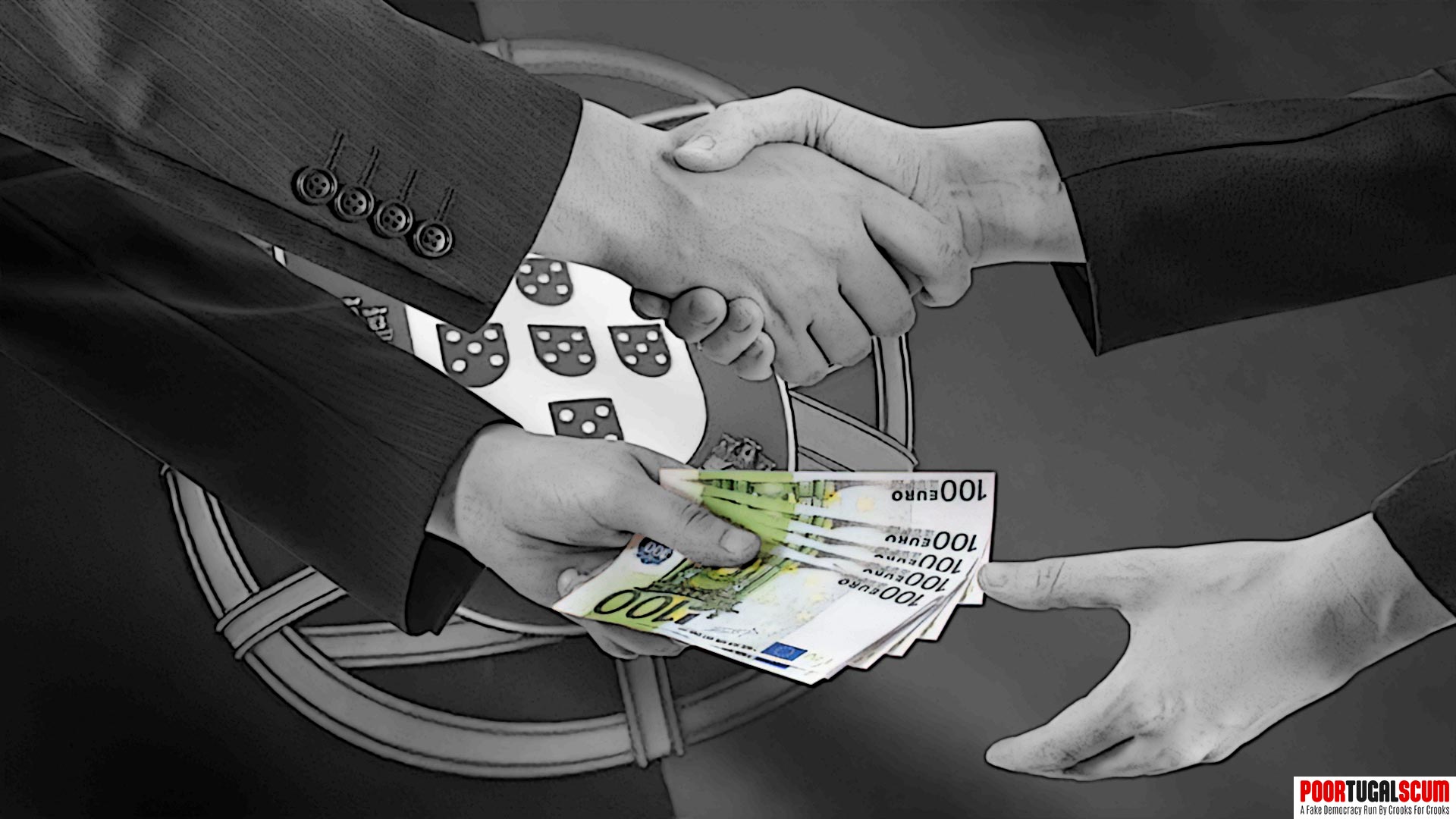
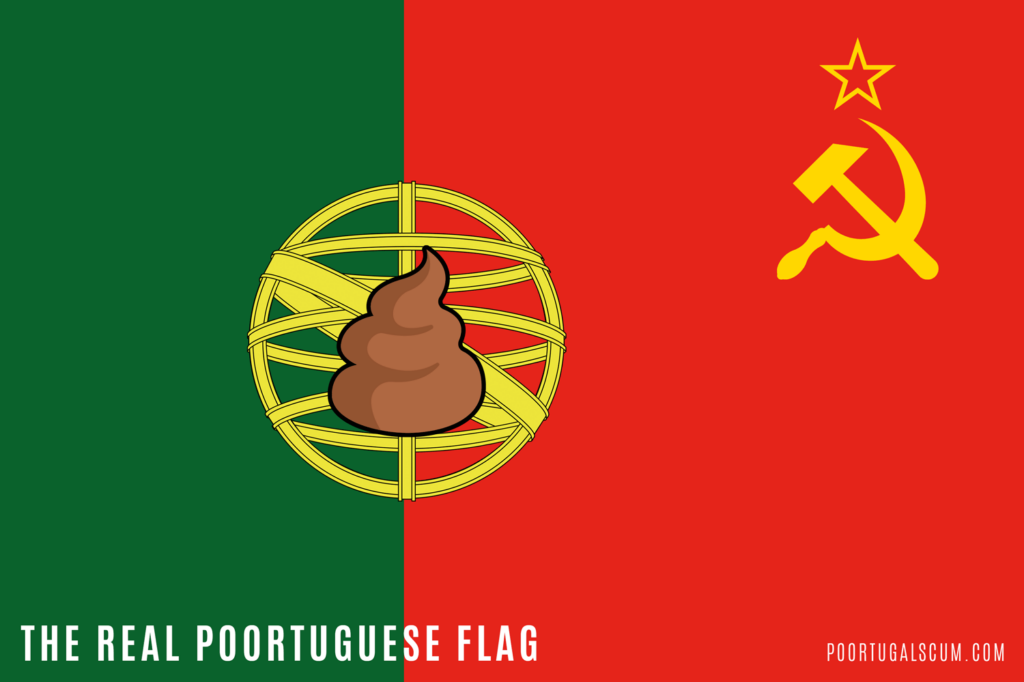
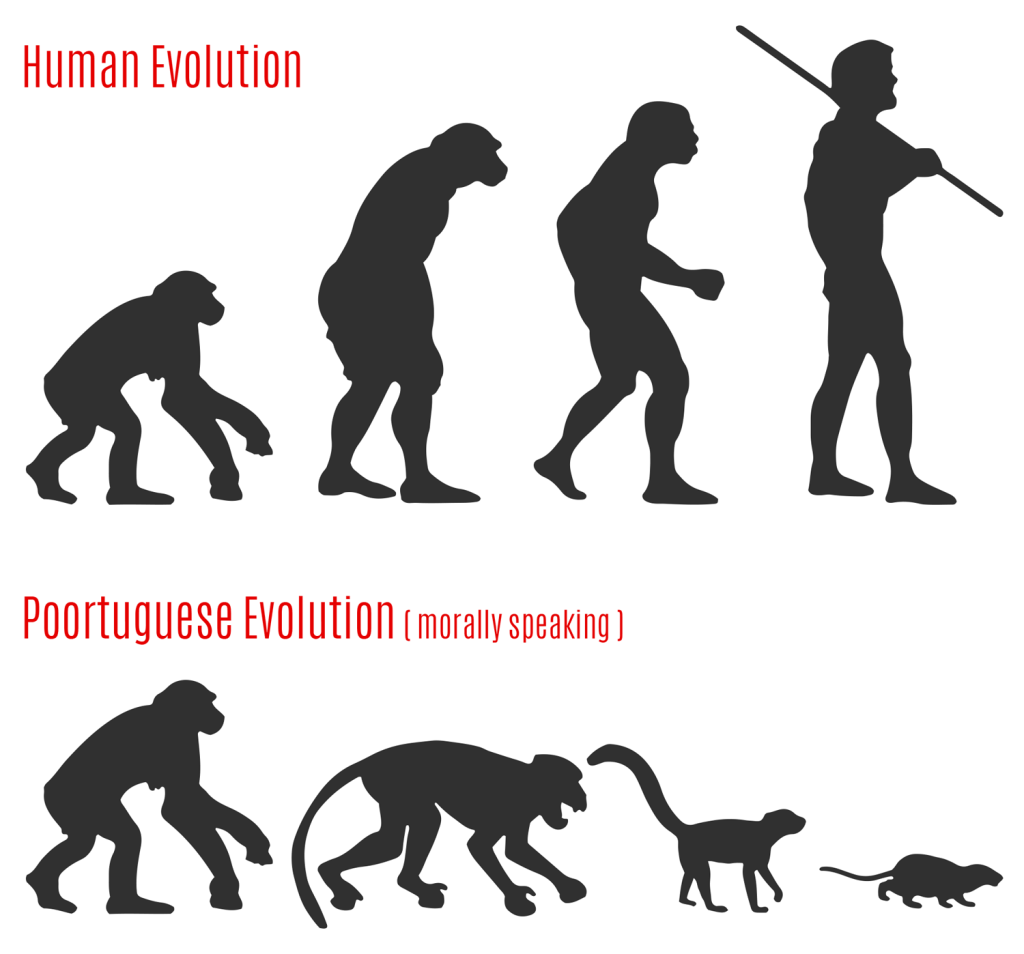
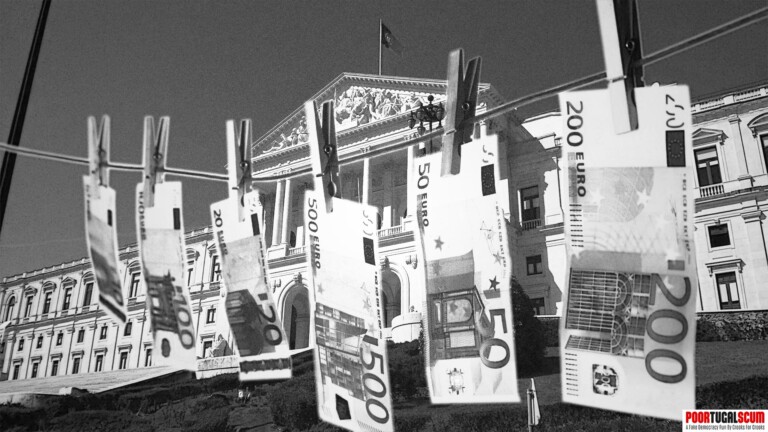
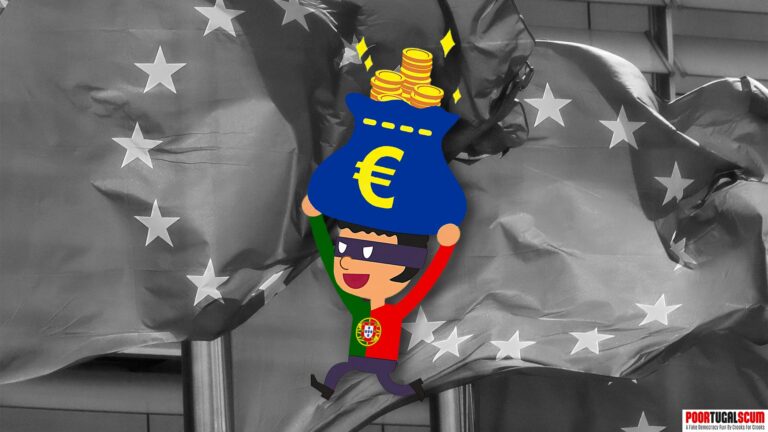
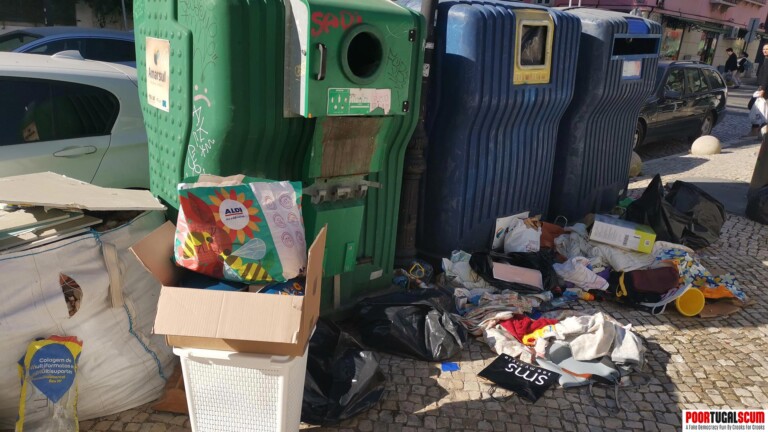


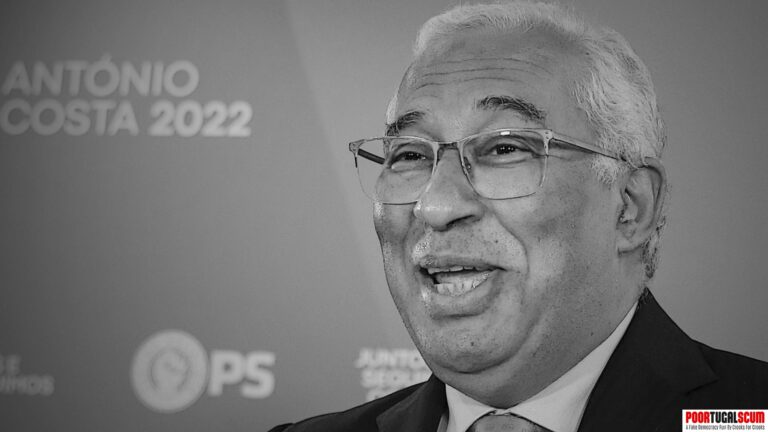
Horrifying that such a country is a member of the EU.